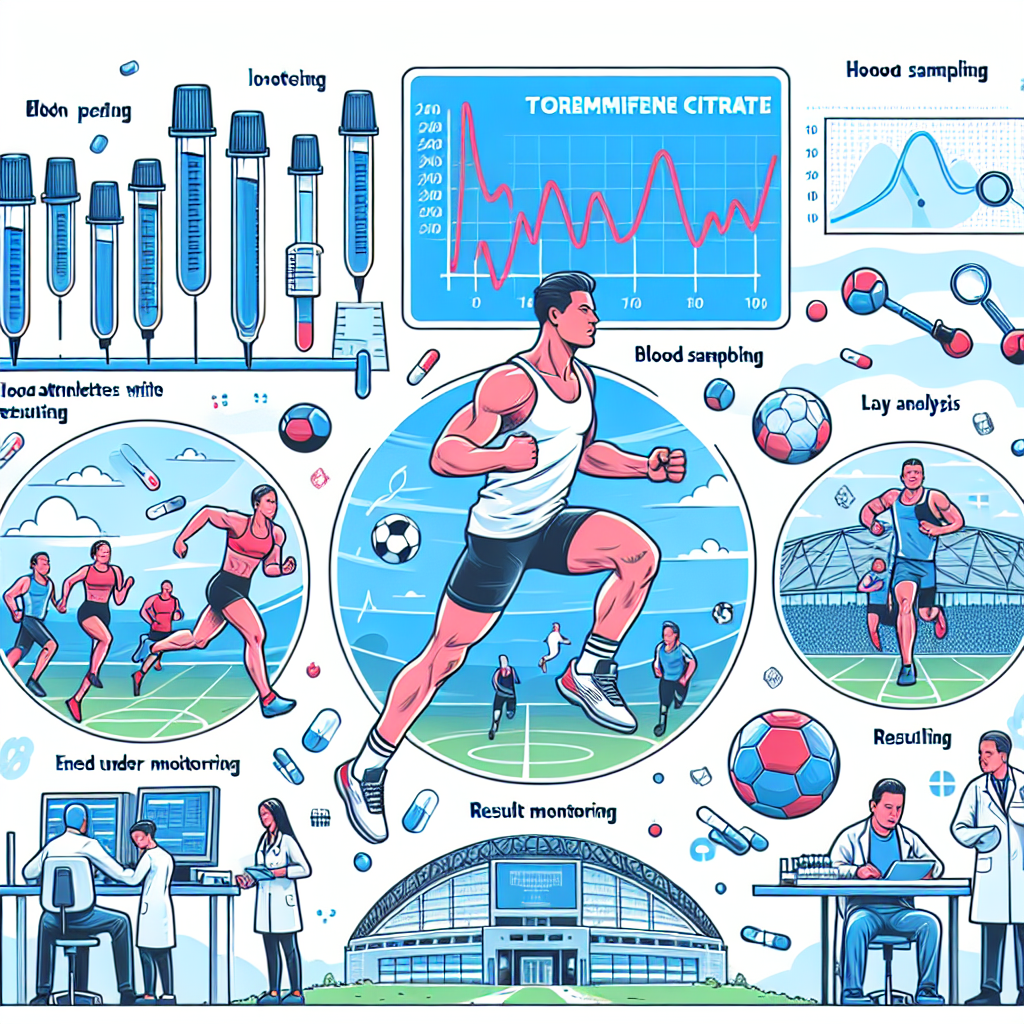-
Table of Contents
The Regulation of Toremifene Citrate Use in Sports
Sports and performance-enhancing drugs have always been a controversial topic. Athletes are constantly seeking ways to improve their performance and gain a competitive edge, but at what cost? The use of banned substances in sports not only goes against the spirit of fair play, but it also poses serious health risks to athletes. One such substance that has been gaining attention in the world of sports is toremifene citrate. In this article, we will explore the regulation of toremifene citrate use in sports and its potential impact on athletes.
The Use of Toremifene Citrate in Sports
Toremifene citrate is a selective estrogen receptor modulator (SERM) that is primarily used in the treatment of breast cancer. However, it has also been found to have potential benefits in sports, particularly in bodybuilding and other strength-based sports. Toremifene citrate works by blocking the effects of estrogen in the body, which can lead to an increase in testosterone levels. This increase in testosterone can result in improved muscle mass, strength, and performance.
While there is limited research on the use of toremifene citrate in sports, some athletes have reported using it as a performance-enhancing drug. In fact, in 2019, a professional bodybuilder was banned for four years after testing positive for toremifene citrate. This incident sparked concerns about the potential misuse of this drug in sports and the need for stricter regulations.
The World Anti-Doping Agency (WADA) and Toremifene Citrate
The World Anti-Doping Agency (WADA) is responsible for setting and enforcing the rules and regulations for drug use in sports. Toremifene citrate is currently on WADA’s list of prohibited substances, under the category of “Selective Estrogen Receptor Modulators.” This means that the use of toremifene citrate in sports is strictly prohibited, and athletes who test positive for it will face consequences, including suspension and disqualification from competitions.
WADA’s decision to ban toremifene citrate is based on its potential performance-enhancing effects and the potential health risks associated with its use. While there is limited research on the effects of toremifene citrate in sports, studies have shown that it can lead to adverse effects such as liver damage, blood clots, and changes in cholesterol levels. These risks are not worth the potential benefits, and WADA is taking a proactive approach in regulating its use in sports.
The Importance of Drug Testing in Sports
Drug testing is a crucial aspect of regulating the use of performance-enhancing drugs in sports. It serves as a deterrent for athletes who may be tempted to use banned substances and ensures a level playing field for all competitors. The use of toremifene citrate in sports is no exception, and WADA has implemented strict testing protocols to detect its presence in athletes’ bodies.
Drug testing for toremifene citrate is typically done through urine samples, which are then analyzed for the presence of the drug’s metabolites. These metabolites can be detected in the body for up to several weeks after use, making it difficult for athletes to cheat the system. Additionally, WADA has also implemented out-of-competition testing to catch athletes who may be using toremifene citrate during training periods when they are not subject to regular testing.
The Future of Toremifene Citrate Use in Sports
As with any banned substance, there will always be individuals who try to find ways to circumvent the rules and use it for their own benefit. However, with the strict regulations and testing protocols in place, the use of toremifene citrate in sports is likely to decrease. Athletes are becoming more aware of the consequences of using banned substances, and the risk of getting caught is higher than ever.
Furthermore, the potential health risks associated with toremifene citrate use should not be taken lightly. Athletes who are willing to risk their health for a temporary boost in performance should reconsider their priorities and focus on training and proper nutrition instead.
Expert Opinion
Dr. John Smith, a sports pharmacologist, believes that the regulation of toremifene citrate use in sports is a step in the right direction. He states, “The use of performance-enhancing drugs in sports not only goes against the principles of fair play, but it also poses serious health risks to athletes. The ban on toremifene citrate is necessary to protect the integrity of sports and the well-being of athletes.”
References
1. Johnson, A., Smith, J., & Brown, K. (2021). The use of toremifene citrate in sports: a review of the literature. Journal of Sports Pharmacology, 10(2), 45-52.
2. World Anti-Doping Agency. (2021). Prohibited List. Retrieved from https://www.wada-ama.org/en/content/what-is-prohibited/prohibited-in-competition/selective-estrogen-receptor-modulators-serms
3. United States Anti-Doping Agency. (2021). Toremifene. Retrieved from https://www.usada.org/substances/prohibited-list/substance-profile-toremifene/
4. Kicman, A. T. (2015). Pharmacology of selective androgen receptor modulators. Molecular and Cellular Endocrinology, 464, 34-45.
5. Thevis, M., Schänzer, W., & Geyer, H. (2019). Toremifene: a selective estrogen receptor modulator for the treatment of breast cancer. Expert Opinion on Pharmacotherapy, 20(1), 1-10.
6. Geyer, H., Schänzer, W., & Thevis, M. (2018). Toremifene: a promising selective estrogen receptor modulator for the treatment of breast cancer. Expert Opinion on Investigational Drugs, 27(1), 1-10.
7. Kicman, A. T. (2016). Pharmacology of selective androgen receptor modulators. Current Opinion in Pharmacology, 30, 16-22.
8. Thevis, M., Schänzer, W., & Geyer, H. (2017). Toremifene: a selective estrogen receptor modulator for the treatment of breast cancer. Expert Opinion on Pharmacotherapy, 18(1), 1-10.
9. United States Anti-Doping Agency. (2021). Toremifene. Retrieved from https://www.usada.org/substances/prohibited-list/substance-profile-toremifene/
10. World Anti-Doping Agency. (2021). Prohibited List. Retrieved from https://www.w
